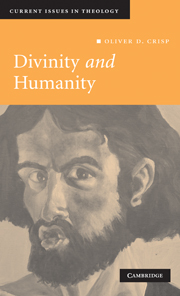6 - Non-incarnational Christology
Published online by Cambridge University Press: 05 June 2012
Summary
The situation would surely have been hopeless had the very majesty of God not descended to us, since it was not in our power to ascend to him.
John CalvinIn this final chapter, I want to consider one leading account of Christology that is an alternative to Chalcedon. Whereas defenders of a Chalcedonian approach to Christology all affirm that Jesus of Nazareth was God Incarnate, this alternative way of conceiving Christology maintains that Christ was merely a human being. He was not, in addition to this, a divine being. Following Brian Hebblethwaite, I shall call Christologies that deny this crucial constituent of the Chalcedonian view ‘non-incarnational Christologies’.
Perhaps the most important leading exponent of such a view among philosophical theologians is John Hick. Earlier in his career, Hick was instrumental in bringing together the contributors to the symposium The Myth of God Incarnate, which, in the late 1970s, set the agenda for non-incarnational accounts of Christology in contemporary philosophical theology. Latterly, as Hick has developed his distinctive approach to religious pluralism, he has returned to Christology in his monograph The Metaphor of God Incarnate: Christology in a Pluralistic Age. Since Hick has been such an influential voice in this discussion, I shall consider his views in particular in what follows. In the course of his long career, Hick's Christology has changed from a version of Chalcedonian orthodoxy to his current notion of Incarnation as metaphor. It is his mature views that will be the focus of this chapter.
- Type
- Chapter
- Information
- Divinity and HumanityThe Incarnation Reconsidered, pp. 154 - 184Publisher: Cambridge University PressPrint publication year: 2007



